Opening the Circle: How Indigenous Pedagogies are being Hardwired into the Department of Electronics
By Joseph Mathieu
A core second-year electronics course at Carleton had a new feature recently added to its problem analysis (PA) sessions to make them more collaborative, positive and engaging for students.
The new component was installed by electrical engineering Assistant Professor, Connor Kupchak, into his ELEC2501: Circuits and Signals course. It is a pedagogy known as an Indigenous learning circle (ILC) and it offers students an opportunity to engage in reciprocal and relational learning.
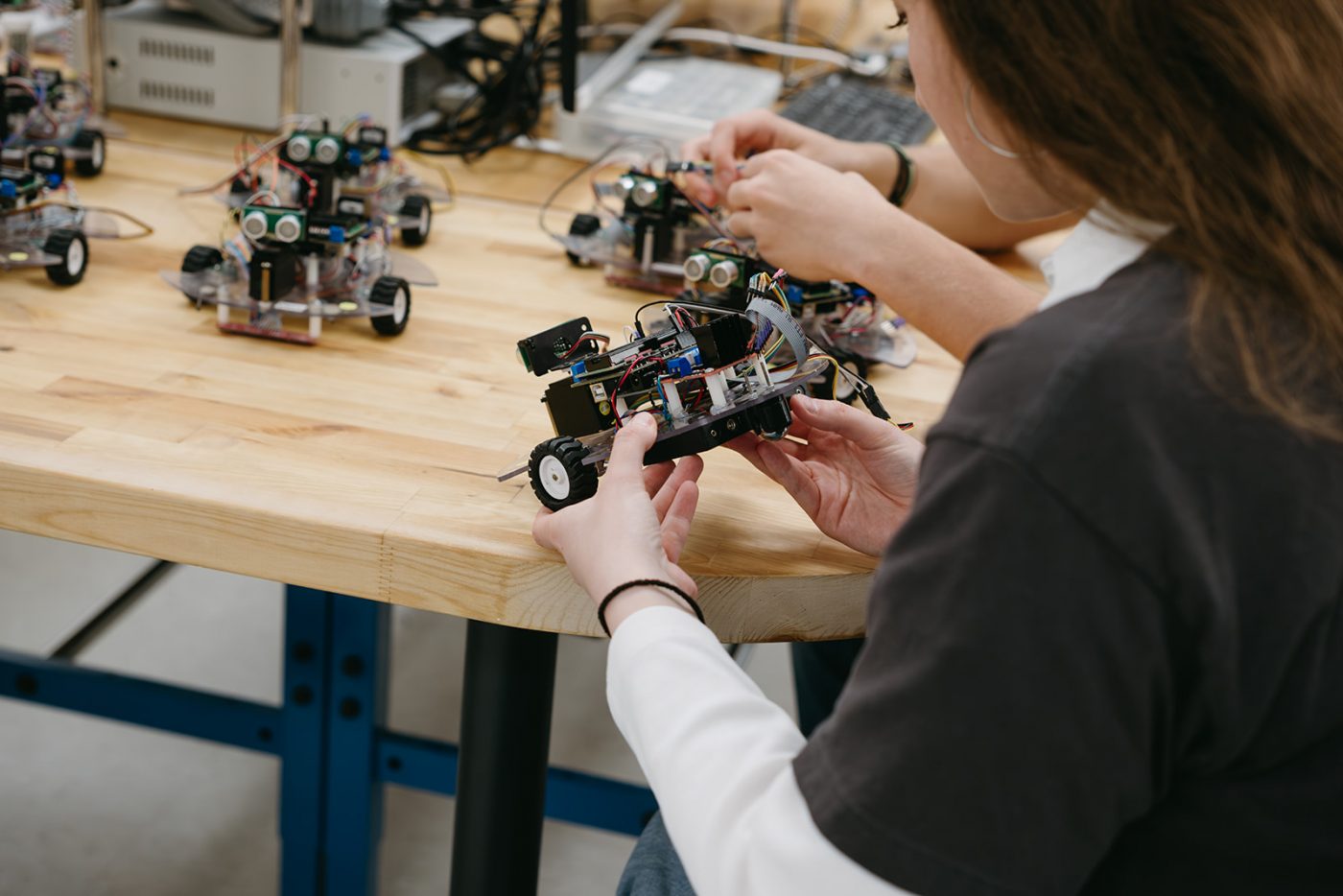
“When I introduce this format, I tell students that the purpose is for them to learn how to communicate, how to share and how to learn from one another,” says Kupchak.
These PA sessions—where a teaching assistant (TA) shows students how to solve problems related to course content—have had a history of low attendance. The TA spends two hours reviewing solutions while students take notes, followed by a final hour dedicated to a quiz. It’s a good example of the hierarchical western education system: the teacher or TA holds the knowledge and doles it out piece by piece while the students are expected to assemble it identically in their knowledge.
ILC pedagogy offers an alternative. Now, the TA writes the first problem on the board and students work on it individually for 20 minutes. During this time, they can use any resources, from lecture slides to textbooks to the internet, but without guidance from the TA. This aims to develop their independent research skills for finding knowledge about the problem.
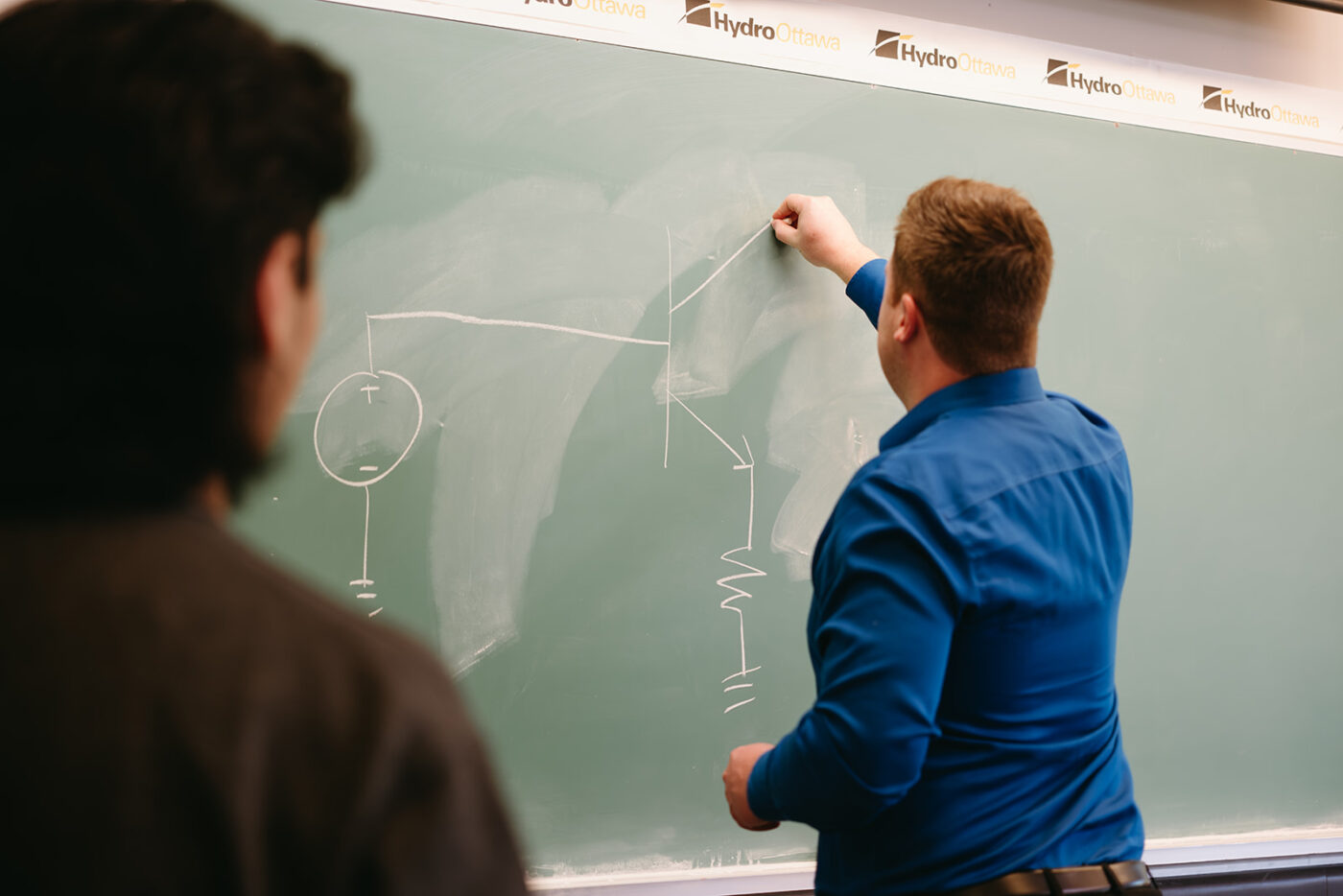
Afterward, students form small groups to share their methods, strategies and solutions, and to reach a consensus on the correct answer. The process will repeat with a second problem before the quiz.
“We are trying to implement an Indigenous pedagogy for students to translate knowledge and build relationships, that promotes safe and empathetic communication among participants,” says Kupchak.
As an Indigenous faculty member at Carleton, Kupchak is passionate about making connections with Indigenous ways of knowing to Western science. This is linked to a strong dedication to Indigenous outreach and engagement to Ottawa and Ontario communities.
His family heritage is from Cross Lake First Nation in Manitoba. He grew up in Winnipeg’s North End where he witnessed the impact a youth mentor can make.
“When I was growing up, there wasn’t a system that encouraged different ways of learning and knowing,” he says. “When I do youth outreach work in communities today, I feel gratitude and a privilege. I strive towards knowing the issues and values that are important to these communities and find ways we can build on that.”
In May 2024, Kupchak attended the biannual Turtle Island Indigenous Science Conference in Regina, Sask. to discuss his outreach work. He is a member of the University of Ottawa and Carleton chapter of Let’s Talk Science, a national, non-profit that aims to inspire and empower youth through STEM.
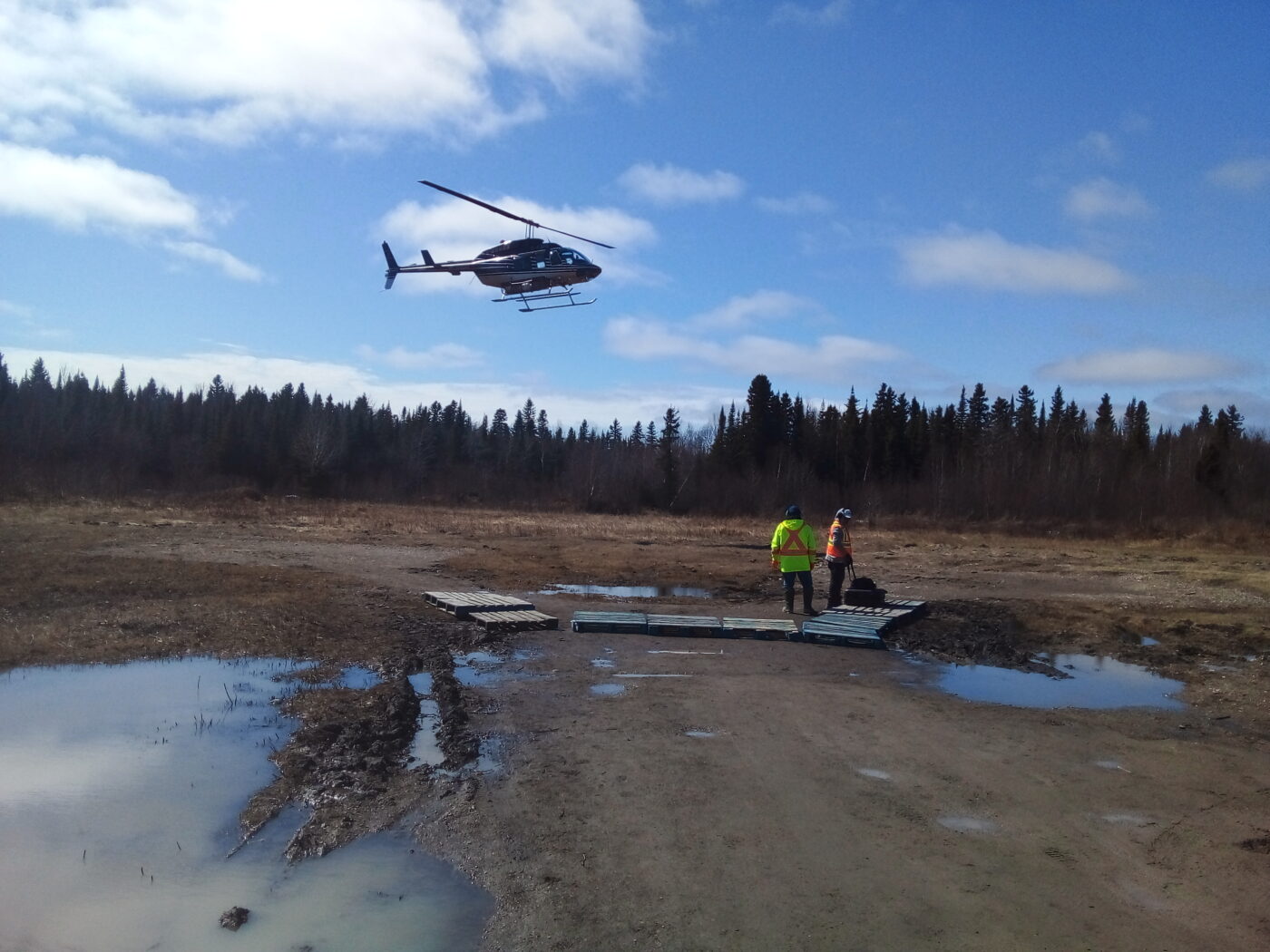
As manager of the chapter’s Indigenous Mentorship Program, which has worked with the Algonquins of Pikwàkanagàn First Nation and the Mohawk Nation of Akwesasne for over 10 years, Kupchak was part of the team that established a partnership in Moose Factory, Ont. This team developed on-the-land activities for Grade 11 students in their Outdoor Education class at Delores D. Echum Composite School during spring 2023.
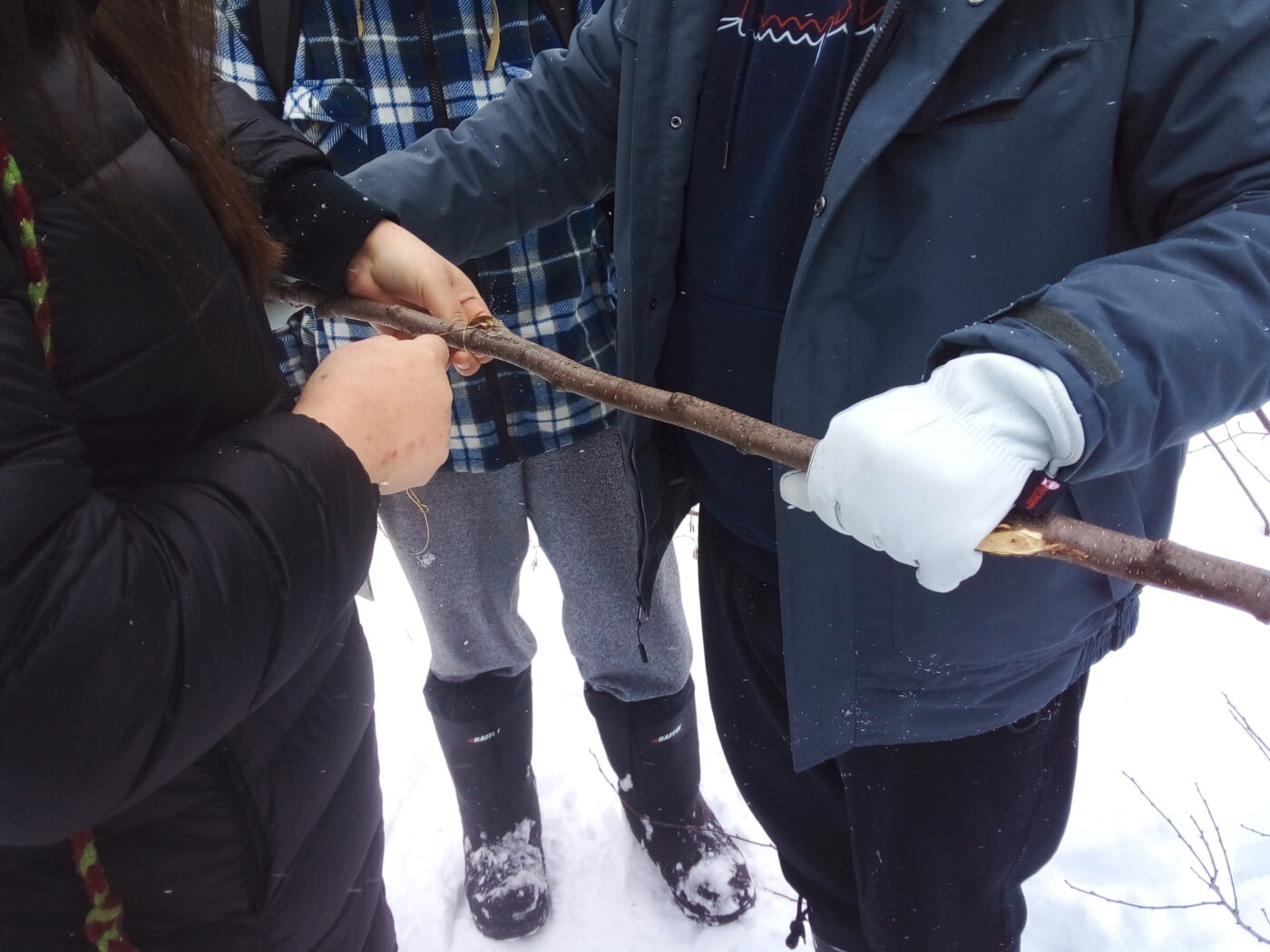
At the Conference, Kupchak met Savannah Sloat (Tuscarora, Six Nations), manager of Science Indigenous Initiatives at the University of Waterloo. She and physics Waterloo Prof. Brenda Lee presented on a new PA session format implemented in introductory physics course tutorials.
Using Indigenous principles of relational learning, students engaged in an Indigenous learning circle protocol during weekly tutorials and worked together to solve physics problems collaboratively. Sloat and Lee found that this deepened student understanding of content and created a safe environment for more effective learning.
“It resonated with me immediately,” says Kupchak. “It was a great solution for what I was witnessing in my classes, where students were so reliant on acquiring knowledge solely from what I was saying and explaining when I teach.”
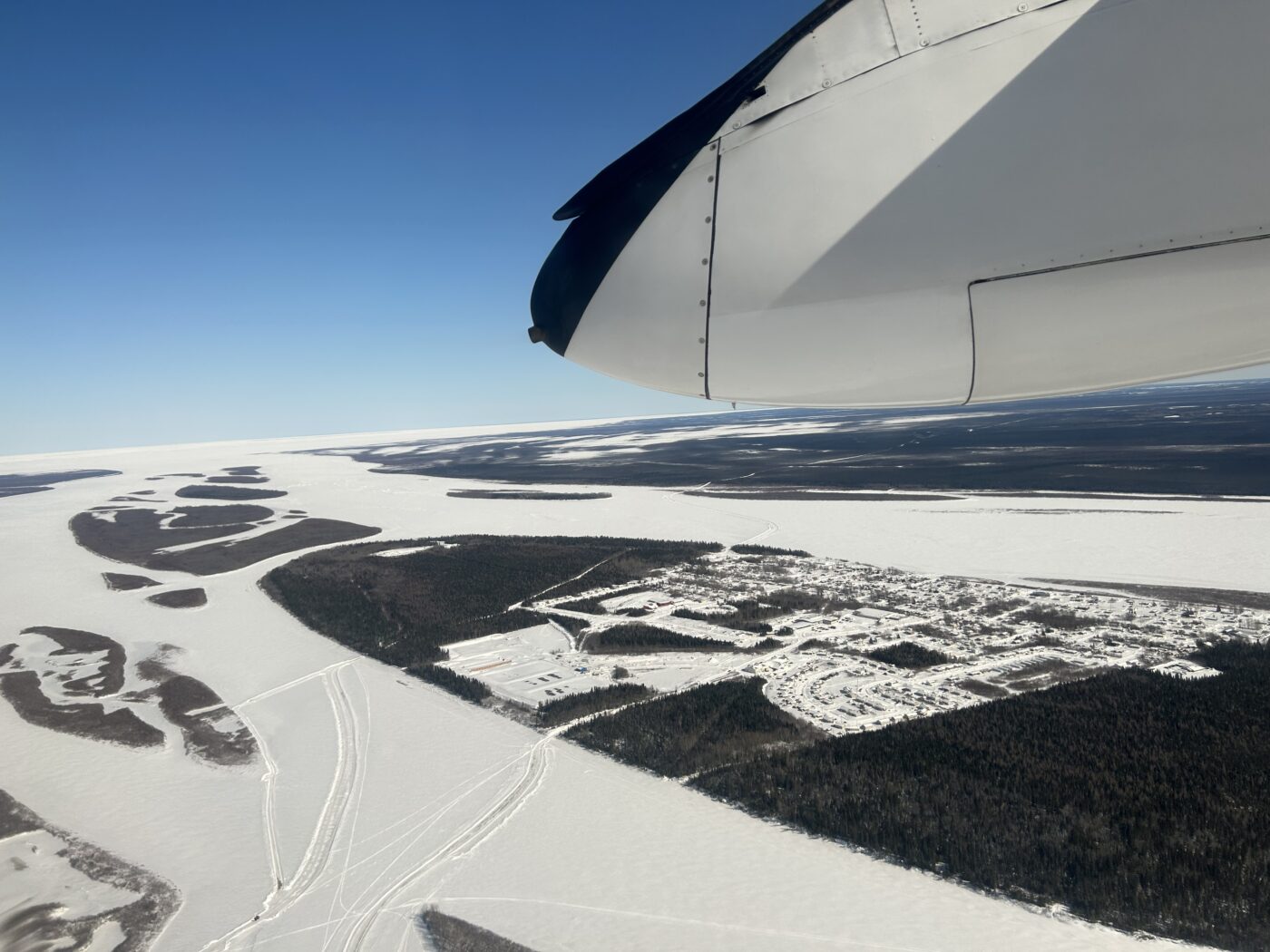
ILC decentralizes the teacher as holder of knowledge and gets students to recognize each other as valuable sources of knowledge. This approach emphasizes collective knowledge gathering within a group rather than isolated individual learning. In this way, answers and expertise are not handed down—from a gatekeeping teacher to a grasping student—but co-created and shared through mutual exchange and learning.
These methods were introduced to Kupchak’s course halfway through the Summer 2024 term and, at its end, Kupchak conducted a survey that found that three quarters of the cohort felt that sharing knowledge with classmates better prepared them for quizzes. Four out of five said that the sharing helped them better retain and understand course concepts.
Students also reported that the learning circle format provided a more engaging way of learning. Some mentioned that their circles went on to become study groups, and one said the format encouraged them to come better prepared for the sessions, ready for discussion with fellow classmates.
“We tried to approach questions with multiple solving techniques and brainstormed ideas and chose the most efficient. This really helped me learn and strengthen my previous knowledge,” said one respondent. “In my opinion, the Indigenous learning circle is a strong tool, and it was one of the most effective ways to learn.”
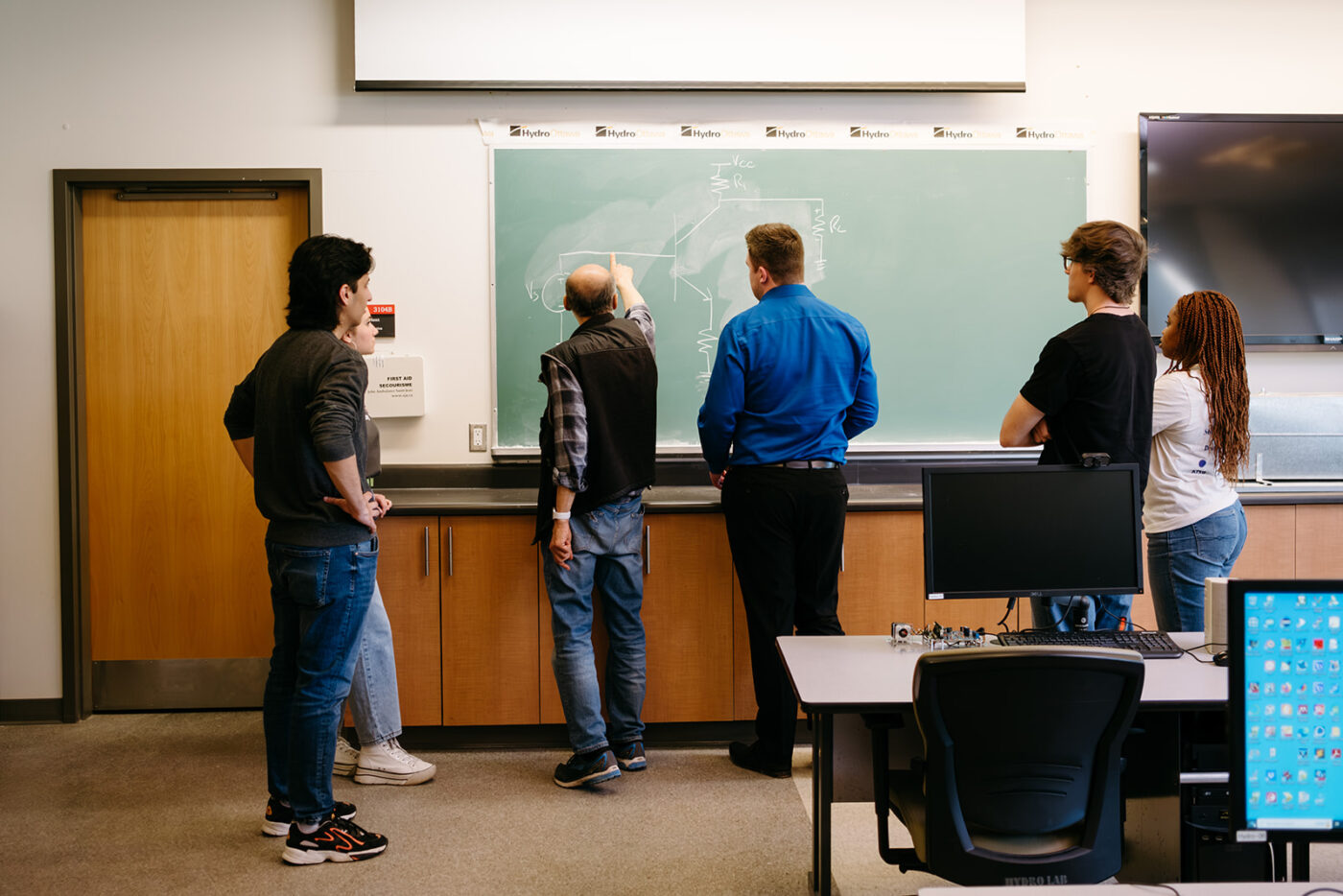
Kupchak applied Indigenous pedagogies inside the classroom because he saw a need to do things differently. Both in the short term—making PA sessions more enjoyable and efficient to students—and in the longer one: normalizing Indigenous pedagogies in post-secondary institutions.
“I am passionate about teaching and learning, and I am interested in ways to enhance learning for students,” says Kupchak. “As educators, it is our responsibility to work towards decolonization within the institution, which includes incorporating Indigenous pedagogies, even when teaching non-Indigenous content.”